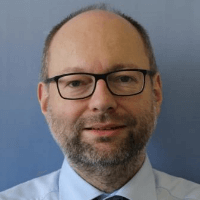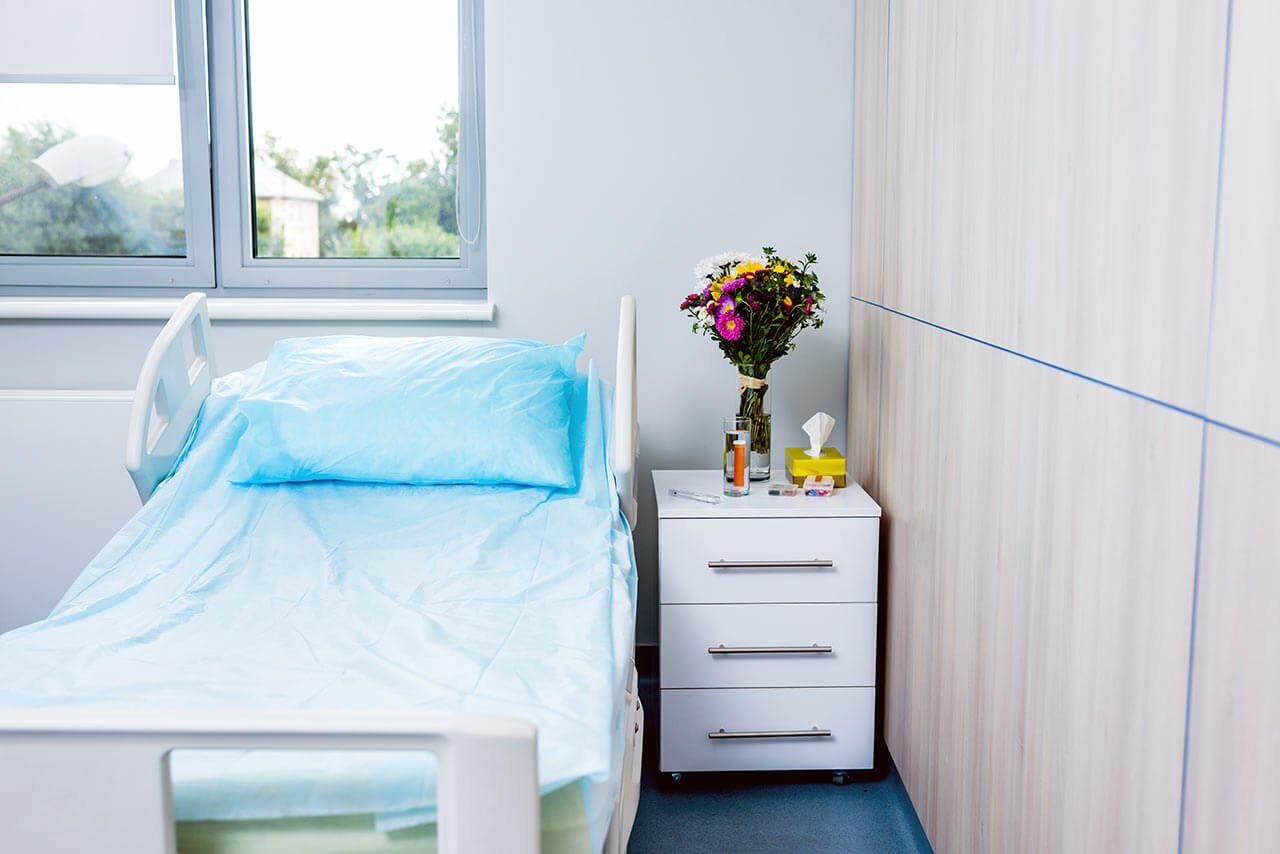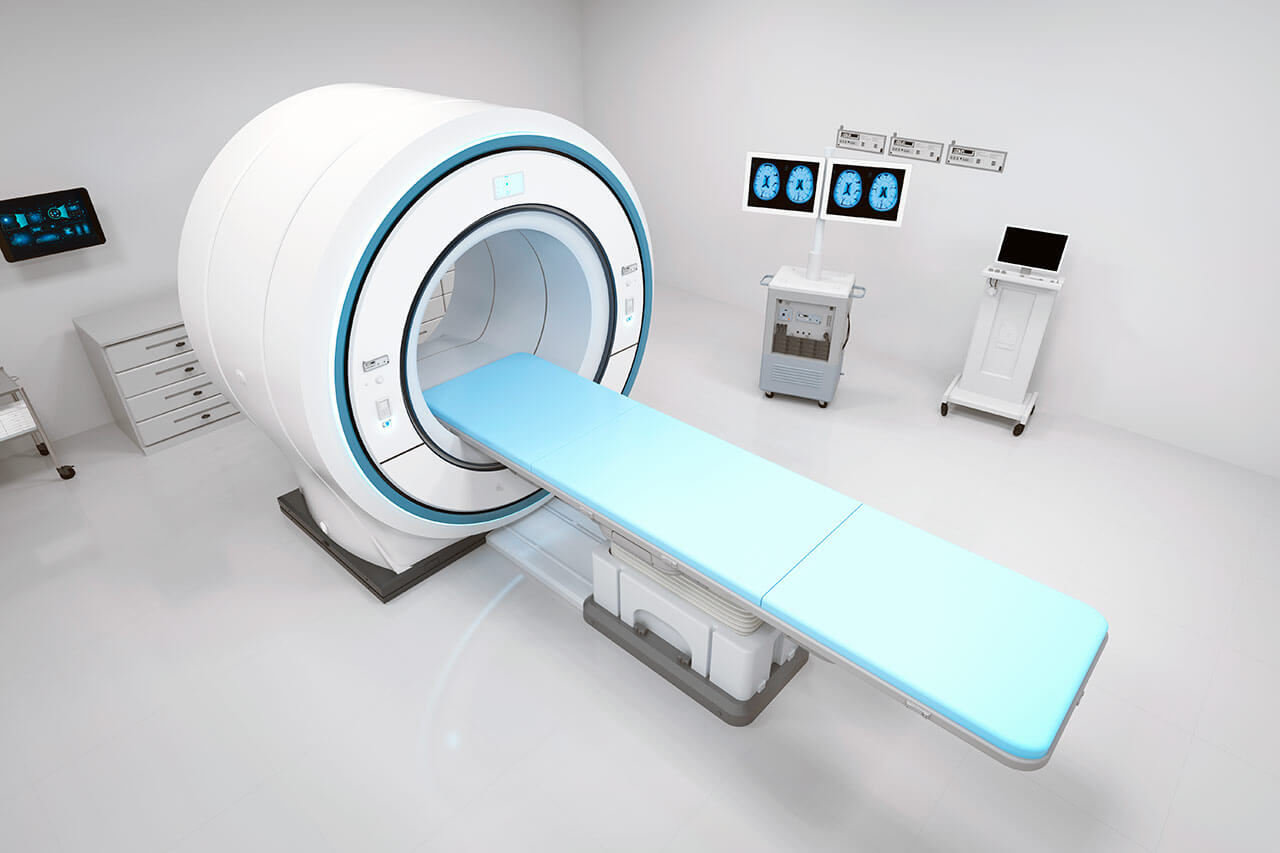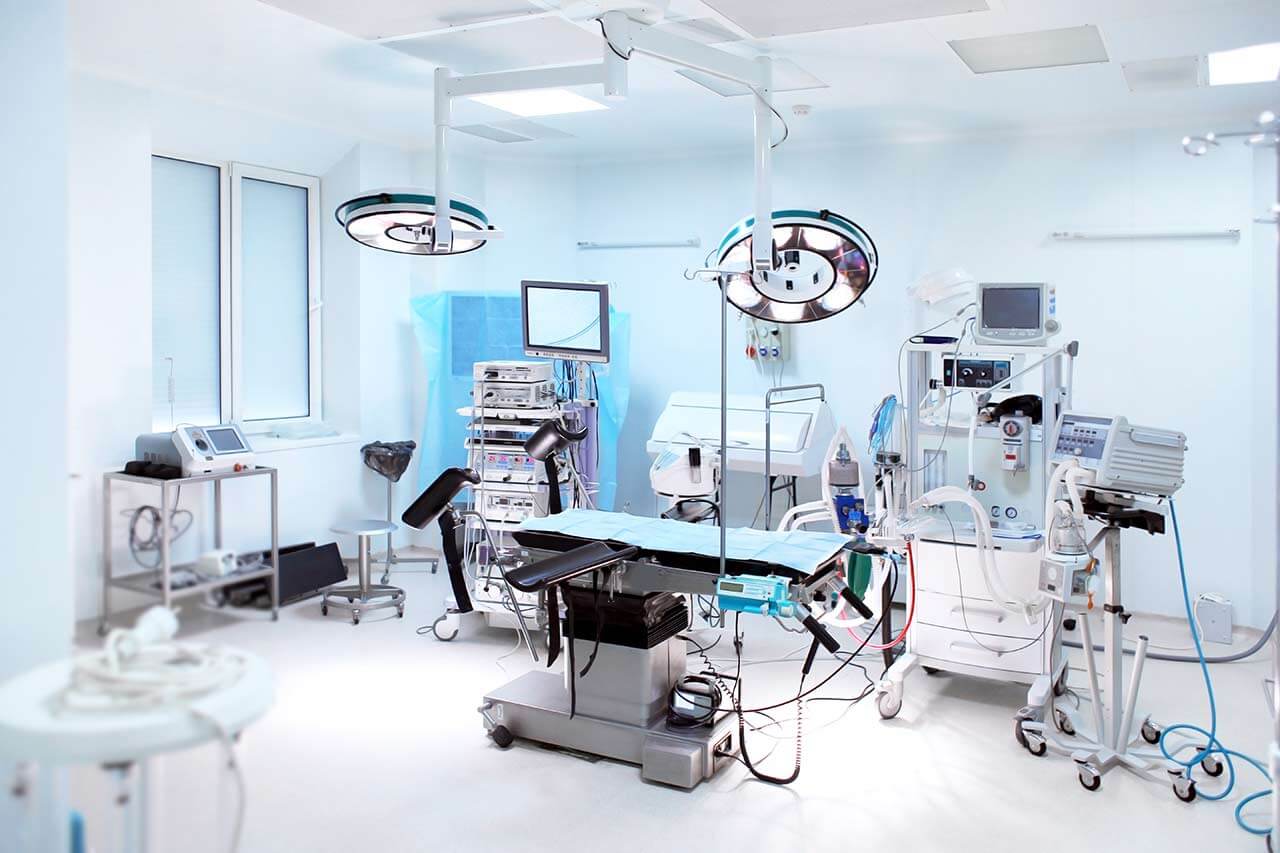
The program includes:
- Initial presentation in the clinic
- clinical history taking
- review of medical records
- physical examination
- laboratory tests:
- complete blood count
- biochemical analysis of blood
- Lipid metabolism (HDL/LDL, cholesterol,
triglycerides Lip(a), homocysteine) - blood coagulation analysis (aPTT, PT, INR)
- inflammation indicators (CRP, ESR)
- metabolic status (uric acid, total glucose, HbA1c)
- cardiovascular disease risk markers
- kidney function test (creatinine, urea)
- color doppler echocardiography
- color doppler sonography of cerebral peripheral vessels
- duplex peripheral arteries
- CT/ MRI-angiography of carotid artery
- preoperative care
- percutaneous transluminal angioplasty
of carotid artery with stenting - blood transfusions (if needed)
- 1-day intensive care unit stay
- symptomatic treatment
- control examinations
- the cost of essential medicines and materials
- nursing services
- full hospital accommodation
- developing of further guidance
Required documents
- Medical records
- Doppler ultrasound/duplex scanning of the affected vessel (if available)
- MRI/CT scan with contrast enhancement, angiogram (if available)
Service
You may also book:
 BookingHealth Price from:
BookingHealth Price from:
About the department
The Department of Neuroradiology at the University Hospital Giessen UKGM offers the full range of imaging studies and interventional procedures for patients with diseases of the nervous system. Medical care is provided in close collaboration with specialists in the field of neurology and neurosurgery, which creates optimal conditions for comprehensive treatment. The therapeutic options of the department include innovative methods of treating vascular malformations in the head and spine, cervical artery and carotid stenosis and cerebral aneurysms. The department is headed by Prof. Dr. med. Tobias Struffert.
The department specializes in examinations of the nervous system. To do this, the department has state-of-the-art 128-slice computed tomography system by Siemens, three MRI devices (1.5 Tesla and 3 Tesla), including devices for functional MRI, diffusion tensor tomography and spectroscopy, as well as an ultramodern digital subtraction angiography system.
One of the department’s priorities is the treatment of cerebral aneurysms. Depending on the results of the diagnostic tests, the patient will be prescribed such effective interventional procedures as coiling and clipping.
The department’s spectrum of medical services includes:
- Diagnostic options
- Computed tomography (CT), including preoperative planning, emergency diagnostics of patients with skull and spinal injuries, strokes, brain hemorrhages, tumors or injuries in the face and neck
- Magnetic resonance imaging (MRI), including special studies of the brain and spine, diagnostics of stroke, cancer, degenerative and inflammatory changes (for example, multiple sclerosis) and vascular changes, as well as intervertebral disc herniation, spinal canal tumors and spinal injuries
- Digital subtraction angiography (imaging of the vessels in the brain and spinal cord, as well as vessels of the soft tissues in the neck and face)
- Therapeutic options
- Coiling for the treatment of cerebral aneurysms
- Clipping for the treatment of cerebral aneurysms
- CT-guided minimally invasive pain therapy (for example, nerve root infiltration in the lumbar and cervical spine, facet joint block)
- Other diagnostic and therapeutic procedures
Curriculum vitae
Prof. Tobias Struffert is the Head and Professor of the Department of Neuroradiology at the University Hospital Giessen UKGM. The doctor studied Human Medicine at the University of Muenster (from 1991 to 1997). In 1998, he received his doctorate, whereas in 2010 he had his habilitation. He worked as a Physician at the University Hospital Aachen. Since 2000, he also served as a Physician at the University Hospital Saarland. Since 2006, he worked at the University Hospital Erlangen. In 2004, Dr. Struffert had his board certification in the field of Diagnostic Radiology and in 2006 in Neuroradiology. In 2009, he became a Specialist in Medical Quality Management. In 2013, the doctor was awarded with the Kurt Decker Prize.
Photo of the doctor: (c) UKGM - Universitätsklinikum Gießen und Marburg GmbH
About hospital
The University Hospital Giessen UKGM positions itself as an ultramodern medical facility with outstanding quality of medical care. The hospital presents almost all areas of medicine, ranging from ophthalmology to traumatology and dentistry. The priorities of the hospital’s activities include surgery, neurosurgery, oncology, nephrology with kidney transplantation and pediatric medicine.
The hospital is the third largest in Germany. Every year, more than 436,000 patients are treated in two locations of the hospital (Giessen and Marburg): 342,000 outpatients and 94,000 inpatients. The medical facility is the first privatized university hospital in the country.
The hospital staff is engaged not only in clinical practice, but also in research activities on the basis of the Faculty of Medicine at Justus Liebig University Giessen and Philipps University of Marburg, which contributes to a significant contribution to the development of modern medicine. During the many years of productive work on the development of new diagnostic and treatment methods, the hospital’s doctors managed to make many significant discoveries.
The hospital enjoys an excellent reputation in Germany and far beyond its borders. It managed to gain such credibility thanks to the high competence of doctors, advanced equipment, high-quality medical service and care.
Photo: (c) depositphotos
Accommodation in hospital
Patients rooms
The patients of the University Hospital Giessen UKGM live in comfortable rooms made in a modern design and light colors. Each room has an ensuite bathroom with shower and toilet. The standard room furnishing includes an automatically adjustable bed, a bedside table, a wardrobe, a table and chairs for receiving visitors, a TV, a telephone.
Meals and Menus
The patients of the hospital are offered balanced, healthy three meals a day: buffet breakfast, lunch and dinner. The private kitchen, certified according to DIN EN ISO 9001:2000, is responsible for providing patients with food and drinks.
If for some reason you do not eat all foods, you will be offered an individual menu. The hospital also has a cafeteria with a large assortment of hot and cold drinks, snacks and desserts.
Further details
Standard rooms include:
Television
All patient rooms are equipped with TV sets. If you have some questions, please contact medical personnel.
Religion
Religious services can be provided upon request.
Accompanying person
During an inpatient program, an accompanying person can stay with you in a patient room or in a hotel of your choice.
Hotel
During the outpatient program, you can stay at the hotel of your choice. Our managers will help you to choose the most suitable option.




